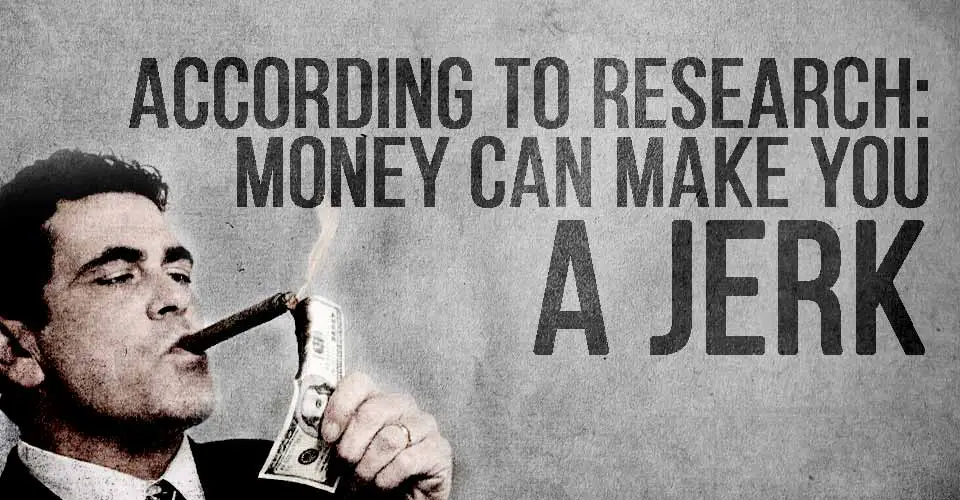For the last 5 years or so, psychologist Paul Piff has been proving a very interesting theory: money makes you mean.
Now before you agree or get offended, hear me out…
Piff has done all kinds of research about the effects of money on people through social psychology experiments, and some of the results are pretty interesting. For instance, in one of his experiments he surveyed a busy intersection in downtown Los Angeles. Piff walked back in forth across a clearly marked pedestrian crossing where drivers are required by law to stop for people crossing the street. He kept track of the vehicles that stopped and those that just kept on driving. According to Piff, “None of the drivers of the least expensive cars broke the law, while close to 50% of our most expensive car drivers broke the law.”
Now Piff wasn’t out to prove that people who had expensive cars were terrible drivers. He was proving a point about empathy in a way. Basically, the people in the expensive cars were less likely to care about the people around them. Piff has done several such social experiments with roughly the same results.
When it comes to money, Piff says, “It makes you more attuned to your own interests, your own desires, your own welfare. It isolates you in certain ways from other people psychologically and materially. You prioritise your own needs and your own goals and become less attuned to those around you. If I put a pen in your hand and ask you to draw a circle to represent yourself, the wealthier you are, the larger that circle is relative to the size of the circles poorer people draw of themselves.”
One of the more interesting experiments he has done recently involved people playing a rigged game of Monopoly. One player started the game with twice the money as the other player, rolled two dice instead of one (moved around the board more), and collected $400 dollars every time they passed GO instead of $200.
The game was recorded on surveillance cameras, and Piff found that the players who got the “leg-up” in the game became cocky, aggressive, and even ate more of the communal snacks that were set out. At the end of the game, the players that had the advantage were asked what it was that attributed to their success and they all mentioned their skill and strategy as opposed to their obvious advantage in the game.
In the following video, Piff explains the experiment, the results, and even highlights some of the videos from the surveillance cameras.



